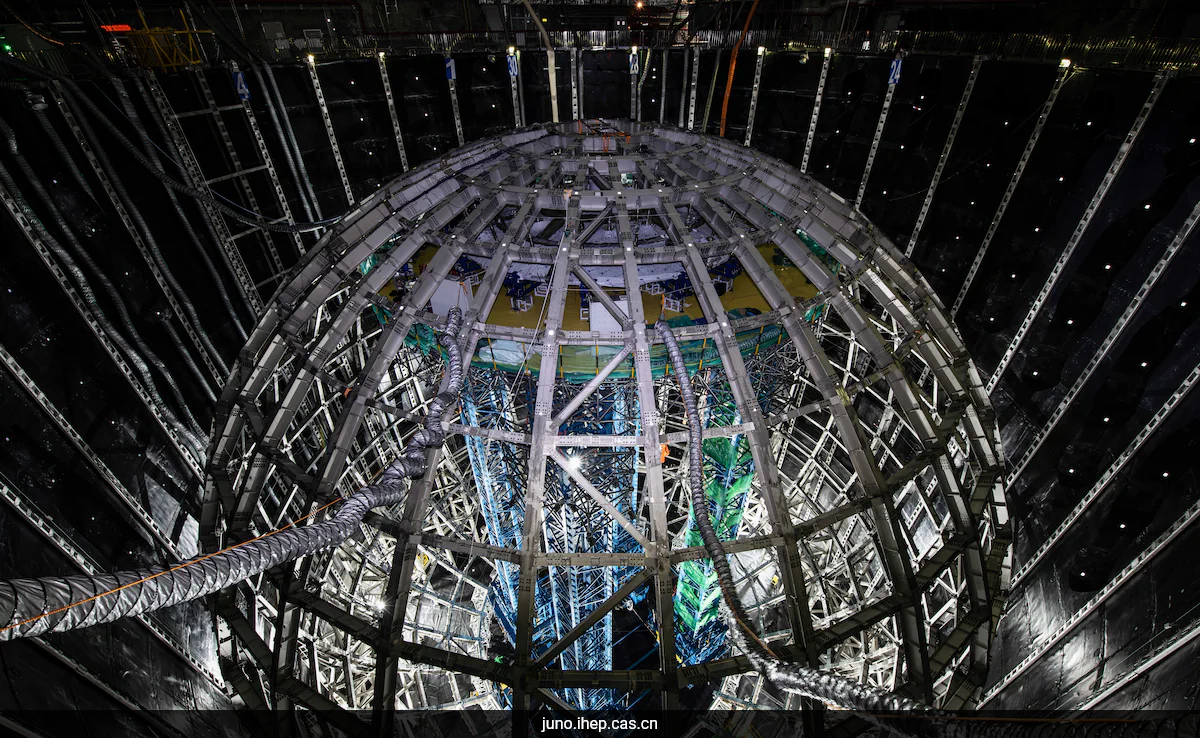
China has officially launched the Jiangmen Underground Neutrino Observatory (Juno), now the world's most powerful and advanced facility for detecting neutrinos, tiny, elusive particles often called "ghost particles", according to The South China Morning Post. Located in Guangdong province, the observatory has begun collecting data to better understand these mysterious particles, which have no electric charge, almost no mass, and travel at nearly the speed of light.
Built 700 metres underground, Juno features a massive 35-metre-wide acrylic sphere containing 20,000 tonnes of liquid scintillator, surrounded by a 44-metre-deep water pool. It is designed to detect and study neutrinos produced by nuclear power plants in Taishan and Yangjiang, approximately 53 km away, as per the newsportal.
The observatory is led by the Institute of High Energy Physics under the Chinese Academy of Sciences. Juno's spokesperson, particle physicist Wang Yifang, described the completion and activation of the detector as a "historic milestone" in global scientific research. First proposed in 2008, the international project is expected to provide groundbreaking insights into the mass and properties of neutrinos.
"Completing the filling of the JUNO detector and starting data taking mark a historic milestone. For the first time, we have put into operation a detector of this scale and precision dedicated to neutrinos. JUNO will allow us to answer fundamental questions about the nature of matter and the universe," Wang Yifang, JUNO's spokesperson and a researcher at the Institute of High Energy Physics (IHEP) of the Chinese Academy of Sciences (CAS), told Chinese media agency Xinhua.
Since neutrinos rarely interact with ordinary matter, they can easily zip through our bodies, buildings, or even the entire Earth without being felt, earning them the nickname "ghost particles". Due to their elusive nature, neutrinos are the least understood fundamental particles, requiring massive detectors to capture their faintest traces.
When passing through the detector, neutrinos have a small chance of bumping into the hydrogen nuclei in the liquid, triggering extremely faint flashes, which can be detected by the surrounded photomultiplier tubes (PMTs) and then converted into electrical signals.
Located 700 metres underground near Jiangmen in Guangdong Province, JUNO detects antineutrinos produced by the Taishan and Yangjiang nuclear power plants, both 53 kilometres away, and measures their energy spectrum with record precision. Unlike other approaches, JUNO's determination of the mass ordering is independent of matter effects in the Earth and largely free of degeneracies with other neutrino oscillation parameters.
JUNO will also enable cutting-edge studies of neutrinos from the Sun, supernovae, the atmosphere and Earth. It will open new windows to explore unknown physics, including searches for sterile neutrinos and proton decay, according to the IHEP.
Track Latest News Live on NDTV.com and get news updates from India and around the world

